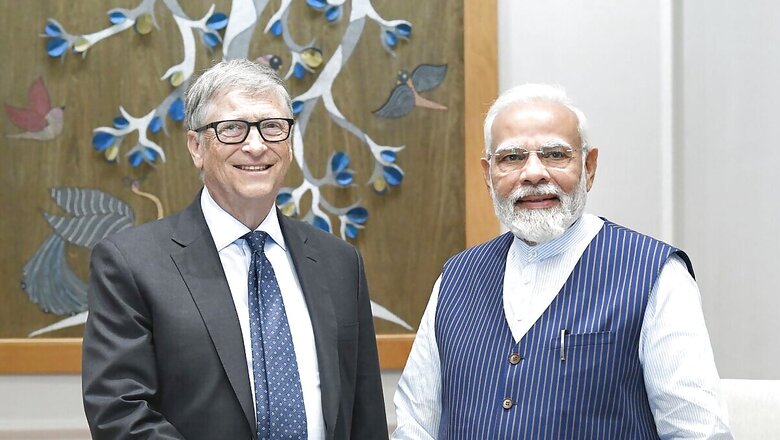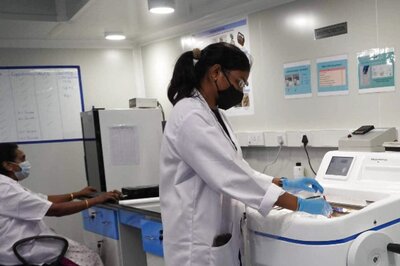
views
Billionaire tech mogul and philanthropist Bill Gates on Tuesday hailed Prime Minister Narendra Modi for achieving “groundbreaking consensus on the role of digital public infrastructure” at the G20 Summit in the pursuit of Sustainable Development Goals.
“The #G20 reached a groundbreaking consensus on the role of digital public infrastructure as a critical accelerator of the Sustainable Development Goals. I’m optimistic about the potential of DPI to support a safer, healthier, and more just world. Kudos to PM Narendra Modi,” Gates posted on X, formerly Twitter, tagging the Indian Prime Minister.
The #G20 reached a groundbreaking consensus on the role of digital public infrastructure as a critical accelerator of the Sustainable Development Goals. I'm optimistic about the potential of DPI to support a safer, healthier, and more just world. Kudos to PM @narendramodi.…— Bill Gates (@BillGates) September 11, 2023
The New Delhi declaration of the recently concluded G20 Summit in India welcomed the ‘G20 Framework for Systems of Digital Public Infrastructure‘ — a voluntary and suggested framework for the development, deployment and governance of DPI — recognising DPI’s role in the delivery of services at a societal scale. The G20 leaders called for a safe, secure, trusted, accountable and inclusive digital public infrastructure for service delivery and innovation.
Put simply, DPI refers to blocks or platforms, such as digital identification, payment infrastructure and data exchange solutions that help countries deliver essential services to their people, empowering citizens and improving lives by enabling digital inclusion.
A case in point is the India Stack — the identity system Aadhaar, payment platform UPI and others, all of which have been receiving ringing praises globally.
DPIs are interoperable, open, and inclusive systems supported by technology and provide essential, society-wide, public and private services that play a critical role in accelerating this digital transformation in an inclusive manner.
According to a G20 document prepared by the World Bank, India has achieved in just six years the financial inclusion targets that would otherwise have taken at least 47 long years. It praised India’s approach in unlocking the power of digital public infrastructure, including Aadhaar and UPI, for financial inclusion.
The impact of DPI goes beyond inclusive finance, to supporting health, education, and sustainability, says the foreward of the document titled `G20 policy recommendations for advancing financial inclusion and productivity gains through DPI’.
“The India stack exemplifies this approach, combining digital ID, interoperable payments, a digital credentials ledger, and account aggregation. In just six years, it has achieved a remarkable 80 per cent financial inclusion rate – a feat that would have taken nearly five decades without a DPI approach,” it said.




















Comments
0 comment